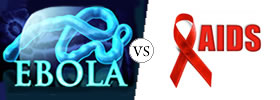Difference between Diabetes and Hypoglycemia
Key Difference: Diabetes is a disease that occurs due to the body’s inability to regulate the blood sugars and thus, high blood glucose levels are generated. On the other hand, Hypoglycemia is a condition that occurs due to abnormal low blood sugar levels.
Hypoglycemia and Diabetes are regarded to be synonymous. However, Diabetes is a disease, wheras Hypoglycemia is a condition. However, Hypoglycemia often occur in diabetic patients.

Diabetes is a disease that is caused due to the inability of the body to convert glucose into energy. Food consumed by us gets converted into fats, proteins or carbohydrates. In the process of digestion, carbohydrates are converted into glucose. This glucose is consumed by the blood cells in order to generate energy. For this transformation, the hormone named as insulin is required. This hormone is produced by the pancreas. Diabetes occurs due to insufficient quantities of insulin.
Diabetes can occur in mainly two types:-
1. Type 1 Diabetes: Cells producing insulin get destroyed. This may occur due to some virus or some kind of reaction. It is treated by daily insulin injections and a healthy diet. Physical regular activity is also suggested.
2. Type 2 Diabetes: Lack of sufficient insulin can lead to this type of Diabetes. It means that insulin is produced but not in sufficient amount. The insulin that is produced, also does not work many times in a proper way. Physical inactivity and obesity can be related with this kind of Diabetes.
Symptoms for type 1 usually occur rapidly than with type 2. Thus, Type 2 is sometimes not noticed in its initial stage. Severe Diabetes can also lead to serious complications and even premature death.
Hypoglycemia is also referred to as low blood glucose or low blood sugar. It occurs when blood glucose falls below the normal average level. It occurs when the body’s sugar is utilized too quickly or the flow of glucose onto the bloodstream is slow. It may also occur due to excessive insulin released into the bloodstream. Thus, it is mostly common in people with Diabetes.
too quickly or the flow of glucose onto the bloodstream is slow. It may also occur due to excessive insulin released into the bloodstream. Thus, it is mostly common in people with Diabetes.
The conditions that can cause Hypoglycemia may be associated with the:-
1. Anti-depression Medicines like monoamine oxidase inhibitors , medicine named as quinine sulfate (used to treat malaria), and aspirin.
2. Excessive Consumption of Alcohol.
3. Diseases that affect the pancreas, liver, kidneys, adrenal glands, or other organs.
4. Hereditary Metabolism problems
5. Problems caused by stomach surgery.
It can also occur in an elder person with Diabetes if he misses a meal or snack.
Symptoms of Hypoglycemia includes:-
- Cold or clammy skin
- Trembling or feelings of nervousness
- Lack of motor coordination
- Tiredness
- Irritation
- Blurred vision, headache or dizziness
- Nausea or stomach pain
- Fainting or unconsciousness
Severe Hypoglycemia could cause seizures. It could even cause coma or death.
Thus, we can say that Hypoglycemia and Diabetes are different. Diabetes is generally characterized with a blood glucose level more than 126 mg/dl, whereas Hypoglycemia is a condition generally defined with a blood glucose level that is below 70 mg/dl. However, Hypoglycemia is usually considered as a side effect of Diabetes treatment.
|
|
Diabetes |
Hypoglycemia |
|
Definition |
A disease caused due to inadequate insulin production, resulting in abnormally high glucose (sugar) levels in the blood. |
Hypoglycemia is a condition that occurs due to abnormal low blood sugar levels. |
|
Causes |
Type 1-Genetic Susceptibility, Autoimmune Destruction of Beta Cells, Environmental factors, such as foods, viruses, and toxins, Viruses and infections, Infant feeding practices Type 2-Genetic Susceptibility, Obesity and Physical Inactivity, Insulin Resistance, Abnormal Glucose Production by the Liver,etc. |
Diabetes and Low Blood Sugar, certain medications like quinine, excessive consumption of alcohol, kidney disorders, a tumor that produces excess insulin, endocrine disorders, etc. |
|
Warning signs |
Frequent urination, unquenchable thirt, loss of weight, weakness and fatique, numbness in hands, legs or feet, etc. |
A rapid heart beat, perspiration, shakiness and anxiety,etc. |
|
Effects: |
Coronary Artery Disease, Nerve Damage, Kidney Damage, Eye Damage, (Infections of the Skin, Female Genital Tract, and Urinary Tract), Peripheral Vascular Disease. |
Effects central nervous system, digestive system, and circulatory system, pailing complexion, flaking, drying and iscoloration of lips, sweating, Brain damage, loss of consciousness, Amnesia. |
|
Diagnosis |
Tests like A1C, Fasting Plasma Glucose, Oral Glucose Tolerance Test and random Plasma Glucose Test. |
Tests like Glucose Tolerance Test. |
|
Treatment |
A carefully calculated diet planned physical activity, multiple daily insulin injections and home blood glucose testing a number of times per day. |
Diet control, exercise, home blood glucose testing, and in some cases, oral medication and/or insulin. |
|
Fasting sugar level |
Above 126 mg/dL |
Less than 70 mg/dL |
Image Courtesy: jalanhealthcare.com, symptomsofhypoglycemia.net









Add new comment